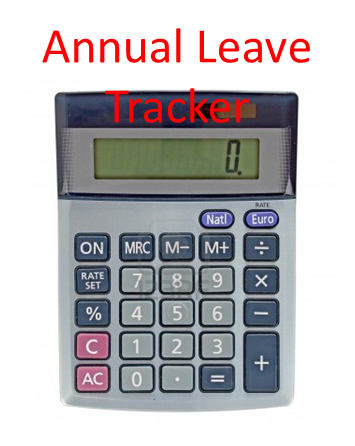Fears for Kerry jobs in pay dispute
Services Industrial Professional and Technical Union (SIPTU) held a secret ballot of its members at Liebherr Container Cranes in Killarney yesterday, 14th January 2014.
SIPTU members voted to reject Labour Court proposals geared at resolving a long-term pay increase dispute with the Company dating back to 2009.
 Liebherr Container Cranes Ltd., a member of the large family-owned German Company, Liebherr Group, was established in Killarney in 1958 and has been a significant direct and indirect employer in the area in recent years. The Company is one of the largest firms in Kerry and one of the largest of its kind in the country.
The German company has warned that its commitment to the plant in Killarney has been weakened in recent months as a result of the on-going pay issues and the industrial action which forced them to send work from Killarney to Germany.
Fears are now growing for jobs at the Company as Management admit to reviewing its operations in the region. Liebherr stated that a small number of employees have seriously compromised its future in Killarney.
Based on the details of Towards 2016 Review and Transitional Arrangement, an agreement drawn up by the Company, a 2.5% pay increase was due to be implemented for employees in January 2009.
Liebherr Container Cranes Ltd., a member of the large family-owned German Company, Liebherr Group, was established in Killarney in 1958 and has been a significant direct and indirect employer in the area in recent years. The Company is one of the largest firms in Kerry and one of the largest of its kind in the country.
The German company has warned that its commitment to the plant in Killarney has been weakened in recent months as a result of the on-going pay issues and the industrial action which forced them to send work from Killarney to Germany.
Fears are now growing for jobs at the Company as Management admit to reviewing its operations in the region. Liebherr stated that a small number of employees have seriously compromised its future in Killarney.
Based on the details of Towards 2016 Review and Transitional Arrangement, an agreement drawn up by the Company, a 2.5% pay increase was due to be implemented for employees in January 2009.
 The Company did not pay the expected increase and argued that payment would severely impact its competitiveness and limit its ability to preserve its headcount numbers in a time of economic hardship. The Company proposed to pay the increase due in three distinct phases beginning in 2012 in return for a number of concessions including cost-offsetting measures.
Union members and the Company were unable to resolve the dispute at local level and it became the subject of a Conciliation Conference under the auspices of the Labour Relations Commission.
Agreement was not reached at this stage and, on the 28th January 2011, the pay dispute was referred to the Labour Court.
A Labour Court hearing was scheduled for, and took place on, the 2nd May 2012.
The Labour Court considered the submissions of all parties and a decision was made that further engagement was required if the claim was to be resolved before the Court. The Court recommended that the discussions/negotiations were to be facilitated by the Labour Relations Commission.
The Company did not pay the expected increase and argued that payment would severely impact its competitiveness and limit its ability to preserve its headcount numbers in a time of economic hardship. The Company proposed to pay the increase due in three distinct phases beginning in 2012 in return for a number of concessions including cost-offsetting measures.
Union members and the Company were unable to resolve the dispute at local level and it became the subject of a Conciliation Conference under the auspices of the Labour Relations Commission.
Agreement was not reached at this stage and, on the 28th January 2011, the pay dispute was referred to the Labour Court.
A Labour Court hearing was scheduled for, and took place on, the 2nd May 2012.
The Labour Court considered the submissions of all parties and a decision was made that further engagement was required if the claim was to be resolved before the Court. The Court recommended that the discussions/negotiations were to be facilitated by the Labour Relations Commission.

As a result of the unresolved pay dispute, industrial action was served by SIPTU in November 2013. Workers at the plant implemented a ban on overtime and undertook a one-day work stoppage late in November. All industrial action was suspended on 28th November when members of the union accepted an invitation to attend a hearing of the Labour Court on 4th December 2013.
In December 2013, the Labour Court recommended that the firm award the disputed 2.5% increase backdated almost two full years to its workers. The Court provided a list of recommendations to both sides. Liebherr said that, while the industrial action and the pay award had increased its cost base, they accepted the recommendation.
SIPTU workers at the plant, however, voted on the 14th January 2014 to reject the Labour Court proposals. The union was said to be dissatisfied with the proposal and wanted the 2.5% wage increase to be implemented on an unconditional basis.
As a result of the unresolved pay dispute, industrial action was served by SIPTU in November 2013. Workers at the plant implemented a ban on overtime and undertook a one-day work stoppage late in November. All industrial action was suspended on 28th November when members of the union accepted an invitation to attend a hearing of the Labour Court on 4th December 2013.
In December 2013, the Labour Court recommended that the firm award the disputed 2.5% increase backdated almost two full years to its workers. The Court provided a list of recommendations to both sides. Liebherr said that, while the industrial action and the pay award had increased its cost base, they accepted the recommendation.
SIPTU workers at the plant, however, voted on the 14th January 2014 to reject the Labour Court proposals. The union was said to be dissatisfied with the proposal and wanted the 2.5% wage increase to be implemented on an unconditional basis.




















 1) If the initial inspection finds Employment Legislation breaches the employer is instructed to take the appropriate steps to rectify the matter.
2) NERA sends a letter to request evidence that the employer is now compliant.
3) If the response is inadequate, the company is warned that any further breaches will be sent to NERA's legal services for prosecution. Then a follow-up inspection occurs.
1) If the initial inspection finds Employment Legislation breaches the employer is instructed to take the appropriate steps to rectify the matter.
2) NERA sends a letter to request evidence that the employer is now compliant.
3) If the response is inadequate, the company is warned that any further breaches will be sent to NERA's legal services for prosecution. Then a follow-up inspection occurs.


 Contracts provided by employers to their employees usually incorporate a mandatory retirement age (Normal Retirement Date/NRD). This tends to make it compulsory for the employee to retire at a certain age, usually this is somewhere between the ages of 60 and 65. Most contracts also include some sort of provision for early retirement on ill-health grounds etc.
Contracts provided by employers to their employees usually incorporate a mandatory retirement age (Normal Retirement Date/NRD). This tends to make it compulsory for the employee to retire at a certain age, usually this is somewhere between the ages of 60 and 65. Most contracts also include some sort of provision for early retirement on ill-health grounds etc. Interestingly, employers are allowed to set minimum recruitment ages provided that the minimum age is 18 or under.
Interestingly, employers are allowed to set minimum recruitment ages provided that the minimum age is 18 or under.
 Bullying or harassment isn’t always obvious – in fact it can come in many shapes and forms – some examples are:
•Social exclusion or isolation
•Damaging someone’s reputation through gossip or rumour
•Any form of intimidation
•Aggressive or obscene language or behaviour
•Repeated requests for unreasonable tasks to be carried out
Employers Beware:
Under current Irish employment legislation (The Employment Equality Acts 1998-2011) companies are accountable when it comes to bullying and harassment in the workplace or workplace disputes. It is vital for employers to be mindful of the legislation as companies are answerable for the actions of employees, suppliers and customers even in cases where the company is not aware that bullying or harassment is taking place.
To defend itself a company must illustrate how it did everything reasonably practicable to prevent bullying and / or harassment from taking place in the workplace. The company must also show that when an instance of bullying or harassment occurred the company took immediate, fair and decisive action.
There is a huge risk of exposure if companies do not adhere to the strict Regulations. Those found in violation of the Act may be liable for fines and in severe circumstances imprisonment on summary conviction. Companies can also end up paying out large sums in compensation.
Bullying creates a very hostile work environment and can negatively affect employee performance – It can lead to disengagement and low levels of morale. It can also cause a company to lose key members of staff. Bullying can affect both the safety and the health of employees – this violates the Safety, Health and Welfare at Work Act 2005.
It is abundantly clear that it is in the best interest of all stakeholders to prevent bullying or harassment of any form in the workplace.
In order to avoid bullying and harassment an employer should include harassment-related policies and procedures in the Employee Handbook – A Dignity at Work Policy should be communicated clearly to employees. This will clarify what is expected of employees and what the protocol/repercussions are if bullying/harassment does occur.
Bullying or harassment isn’t always obvious – in fact it can come in many shapes and forms – some examples are:
•Social exclusion or isolation
•Damaging someone’s reputation through gossip or rumour
•Any form of intimidation
•Aggressive or obscene language or behaviour
•Repeated requests for unreasonable tasks to be carried out
Employers Beware:
Under current Irish employment legislation (The Employment Equality Acts 1998-2011) companies are accountable when it comes to bullying and harassment in the workplace or workplace disputes. It is vital for employers to be mindful of the legislation as companies are answerable for the actions of employees, suppliers and customers even in cases where the company is not aware that bullying or harassment is taking place.
To defend itself a company must illustrate how it did everything reasonably practicable to prevent bullying and / or harassment from taking place in the workplace. The company must also show that when an instance of bullying or harassment occurred the company took immediate, fair and decisive action.
There is a huge risk of exposure if companies do not adhere to the strict Regulations. Those found in violation of the Act may be liable for fines and in severe circumstances imprisonment on summary conviction. Companies can also end up paying out large sums in compensation.
Bullying creates a very hostile work environment and can negatively affect employee performance – It can lead to disengagement and low levels of morale. It can also cause a company to lose key members of staff. Bullying can affect both the safety and the health of employees – this violates the Safety, Health and Welfare at Work Act 2005.
It is abundantly clear that it is in the best interest of all stakeholders to prevent bullying or harassment of any form in the workplace.
In order to avoid bullying and harassment an employer should include harassment-related policies and procedures in the Employee Handbook – A Dignity at Work Policy should be communicated clearly to employees. This will clarify what is expected of employees and what the protocol/repercussions are if bullying/harassment does occur.
